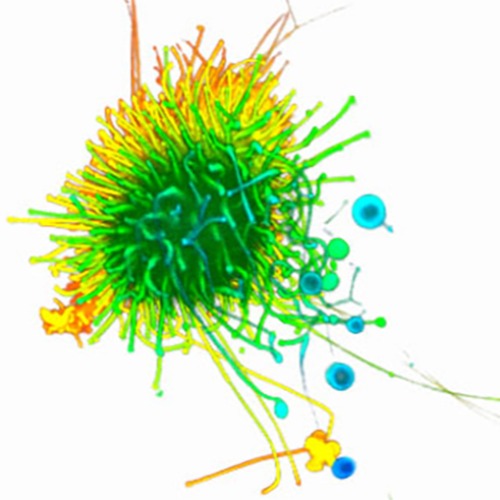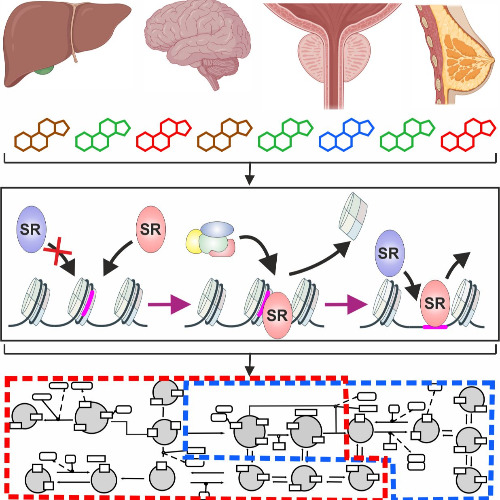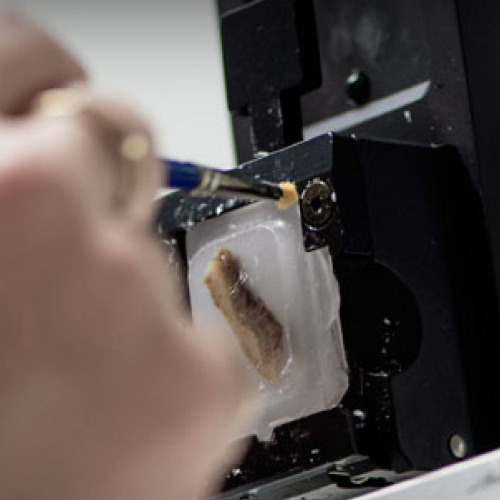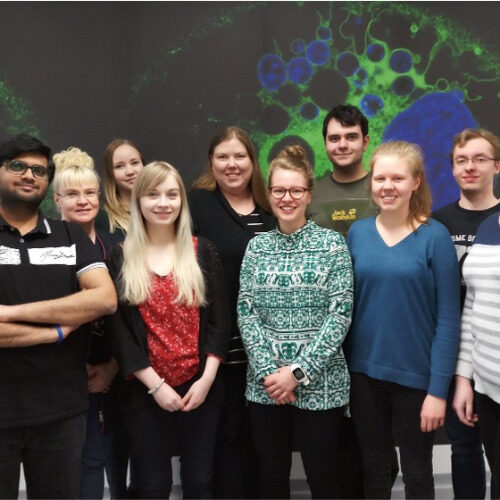
Cancer Cell Plasticity - Ketola Lab
Leaders
We study the molecular mechanisms of cancer cell plasticity and prostate cancer treatment resistance including neuroendocrine transdifferentiation and cellular neuroplasticity programs in prostate cancer. We aim at identifying novel therapeutic targets and biomarkers for neuroendocrine prostate cancer and ways to bring treatment resistant prostate cancer cells back to antiandrogen therapy sensitive state. We employ several genome-wide and cellular imaging methods such as RNA-seq, ATAC-seq, ChIP-seq and live-cell high-content and -throughput imaging and drug screening to understand and target through precision medicine approaches the cellular plasticity stages and epigenetic reprogramming in cancer treatment resistance. We also utilize patient-derived organoids of prostate and neuroendocrine prostate cancer patients as well as patient blood samples on different treatment stages to identify and validate our findings. Our recent identified novel players highly overexpressed after antiandrogen therapy include neuroplasticity protein DPYSL5, which regulates antiandrogen enzalutamide resistance, chromatin reprogramming and neuronal cell phenotype in prostate cancer, Fanconi anemia pathway and FANCI which plays a role in carboplatin resistance in prostate cancer as well as a stem cell transcription factor which turns on cancer stem cell and resistance program in androgen-independent prostate cancer. By inhibiting these cellular plasticity programs we believe we can target the development of aggressive forms of cancer.
News
-
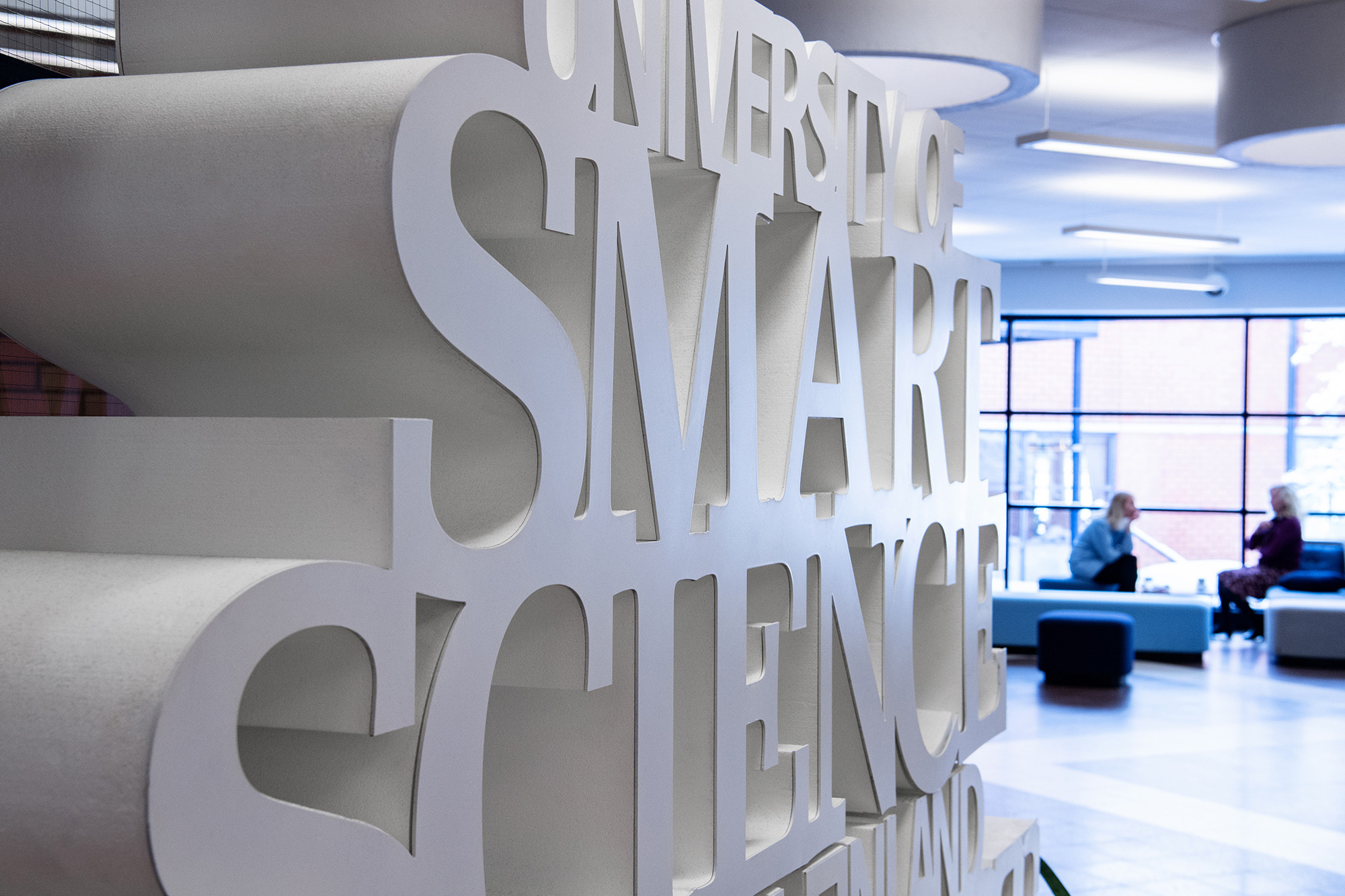 Neuroendocrine prostate cancer could be restored to a state that responds to treatment
Neuroendocrine prostate cancer could be restored to a state that responds to treatmentNeuroendocrine prostate cancer could be restored to a state that responds to treatment
-
 Eturauhassyövän ja Alzheimerin taudin mekanismit löytyvät soluista
Eturauhassyövän ja Alzheimerin taudin mekanismit löytyvät soluistaEturauhassyövän ja Alzheimerin taudin mekanismit löytyvät soluista
-
 Steroidireseptorien tutkimuskeskus yhdistää nuoria huippututkijoita
Steroidireseptorien tutkimuskeskus yhdistää nuoria huippututkijoitaSteroidireseptorien tutkimuskeskus yhdistää nuoria huippututkijoita
-
 Genomic comparison of prostate cancer cells eradicated by and resistant to treatment allows researchers to identify targets for enhanced therapy
Genomic comparison of prostate cancer cells eradicated by and resistant to treatment allows researchers to identify targets for enhanced therapyGenomic comparison of prostate cancer cells eradicated by and resistant to treatment allows researchers to identify targets for enhanced therapy
Projects
Cooperation
Keywords
Leaders
Post-doctoral Researchers
Doctoral Researchers
-
Roosa Kaarijärvi
Visiting ResearcherInstitute of Biomedicine, School of Medicine, Faculty of Health Sciences -
Noora Leppänen
Doctoral ResearcherInstitute of Biomedicine, School of Medicine, Faculty of Health Sciences -

Eerika Takala
Doctoral ResearcherInstitute of Biomedicine, School of Medicine, Faculty of Health Sciences -
Okko-Sakari Kääriäinen
CoordinatorInstitute of Clinical Medicine, School of Medicine, Faculty of Health Sciences
Technicians
Supporting Staff
Other group members
-
Tomas Darth
-
Pihla Isopahkala
-
Onni Niemi
-
Eero Haanpää
-
Aleksanteri Seppälä
-
Joosua Järvinen


